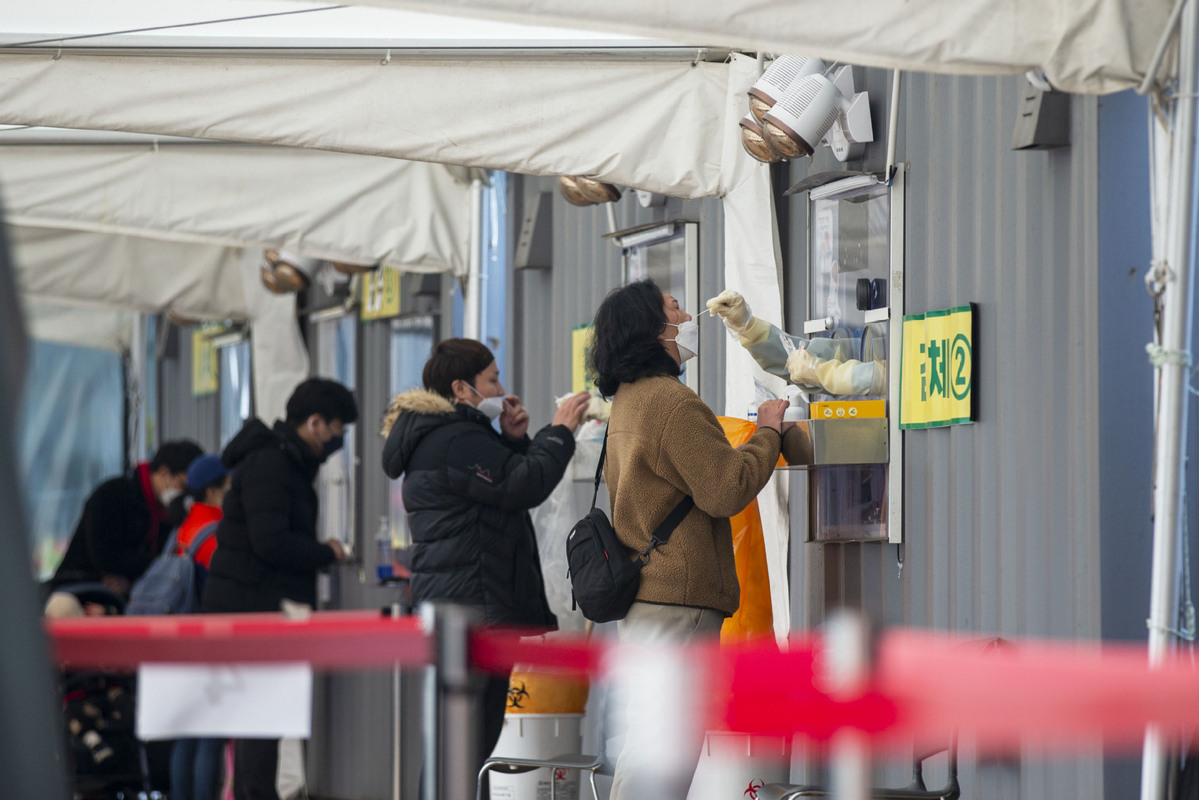S.Korea to tighten social-distancing rules amid surging COVID-19 cases


SEOUL - South Korea decided Thursday to tighten its social-distancing rules later this week amid surging COVID-19 cases following eased anti-virus measures last month.
The maximum number of people allowed for private gatherings will be lowered to four across the country for 16 days from Saturday until Jan 2, South Korean Prime Minister Kim Boo-kyum told a government meeting on COVID-19 response.
The business hour curfew will be restored on multi-use facilities, including restaurants and cafes.
Starting Saturday, up to four fully vaccinated people can sit together at restaurants and cafes, which will run until 9 p.m. local time. Those who are not fully inoculated can sit alone or use take-out or delivery services.
The business hours of nighttime entertainment facilities, such as nightclubs, will be restricted to 9 p.m., while movie theaters, concert halls and internet cafes will be allowed to operate until 10 p.m.
The tougher quarantine measures came amid soaring COVID-19 cases for the past month.
In the latest tally, South Korea reported 7,622 more cases of COVID-19 for the past 24 hours, lifting the total number of infections to 544,117. The daily caseload was slightly down after hitting a new high of 7,850 in the previous day.
Jeong Eun-kyeong, chief of the Korea Disease Control and Prevention Agency (KDCA), told a press briefing that the daily number of new infections could spike to about 10,000 within this month and as high as 20,000 next month.
Jeong said the number of critically ill patients can rise to a 1,600-1,800 range this month if the resurgence continues.
The latest data showed that the number of infected people who were in a serious condition increased to 989.
The government launched a so-called "living with COVID-19" campaign in November by removing all business hour curfews and significantly increasing the ceiling on private gatherings across the country.
However, the government cut the ceiling on private gatherings again last week to six in the Seoul metropolitan area and to eight in non-capital areas on the back of the surge in new infections.
The prime minister said the government will offer financial assistance to the businesses affected by the toughened anti-virus measures in addition to compensation for operation losses.
Kim noted that it needed time to expand medical capacity and raise vaccinations in order to get over the pandemic crisis, calling for those aged 60 or higher to receive COVID-19 booster shots rapidly.
The number of infections among minors and elders swiftly increased in recent weeks.
The daily average number of infections per 100,000 minors aged 19 or lower stood at 14.4 in the second week of December, with 16.3 for elders aged 60 or higher, according to the KDCA data.
It was far higher than 7.8 for those in their 20s, 10.3 in their 30s, 9.0 in their 40s and 9.1 in their 50s respectively.
To reduce transmission among students, the education ministry ordered all schools in the greater Seoul area and some schools in the non-capital areas to reduce offline classes from next week.
The country's full vaccination rate has reached 81.5 percent of the total population, with 17.3 percent of the population having received booster shots.

































